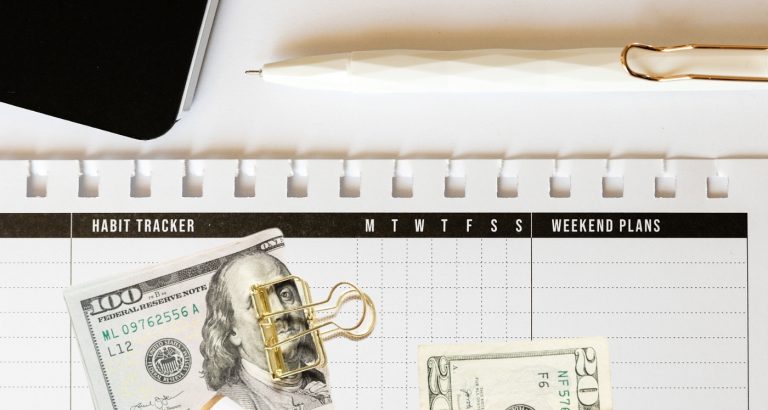How to Move Out at 18 [Financial Must-Do’s]
![How to Move Out at 18 [Financial Must-Do's] 1 Young adult reading How to Move Out at 18 step by step](https://herpaperroute.com/wp-content/uploads/2022/04/How-to-Move-Out-at-18.jpeg)
You’ve decided that being independent as early as possible is essential for you. So, you need some information about how to move out at 18.
While this can seem daunting, it’s not impossible if you’re willing to work hard and plan things ahead of time.
As an affiliate partner of various brands and sponsored content, HerPaperRoute may earn commission on qualifying purchases. Disclaimer
Let’s talk about the different aspects of moving out at 18, and give you the necessary financial tips to help you move out wisely.
Is it Realistic to Move Out at 18?
Moving away from home so early is a lot to handle. Is it even realistic to do this? It can be if you’re adequately educated about what you need and take the time to get prepared.
You need to have some financial things in order. You’ll need a job, and you must learn about what life will be like when you live on your own.
But even if you can do it, is moving out so soon a good idea?
Is Moving Out at 18 a Good Idea?
Only you can answer this question. And a lot of it depends on your home situation, why you want to move, and whether or not you can afford it.
Here are some reasons why moving out might make sense for you.
You learn to manage finances
When bill paying and rent are all up to you, you’ll learn how to manage finances. Since you’re responsible for everything with money, you have to know how to handle what you have and make a system that works for you.
You’ll likely have some challenging times and learning experiences. However, learning how to manage finances is a big perk of moving out.
Related: Personal Financial Literacy Tips Everyone Ought to Know
You get privacy and personal space
If you don’t have your own space at home, moving out can be helpful. When you live on your own, you can keep whatever schedule you want, have privacy, and not be surrounded by people if you don’t want to be.
Your relationship with your parents could improve
If you and your parents disagree on house rules or have a problematic relationship, moving out on your own may help. When you each have your own space and make your own rules, you’re free to focus on improving your relationship instead of disagreeing.
What Should Someone Know Before They Turn 18 and Move Out
There are many things you should be aware of before you try to live on your own. Here are some important ones.
Know what options are available
You need to know what options are available to you before making plans. For example, are there any low-cost apartments in your area?
How far are those places from your job? Research the place you’d like to live and find out more about what will matter most.
Research costs in your area
Every location has a cost of living, so how expensive will it be to live on your own? There are lots of costs associated with renting, including many hidden ones.
Check out these typical costs.
Rent cost
What will be the cost of an apartment or studio each month? What is the average cost, and what is the price at some of the places you’re considering?
Factor this into your overall expenses. If you’re only earning minimum wage, you won’t be able to afford to rent anywhere in America without roommates or creative housing.
Cost of Utilities
In addition to rent, you’ll also need to pay utilities, such as water, sewer, trash, electricity, etc. Some rental prices include some utilities, while others do not.
Know the costs before deciding where to live.
Related: Ways to Get Free Internet
What deposits are required
You will also need to pay a deposit on your rental, which is generally about the same as a month of rent. Make this part of your moving budget.
What utilities will you need?
Sometimes your utilities aren’t automatically set up when you move to a new place. Some work is required to get them into your name or set it up entirely.
For setup, check out the provider’s website for instructions.
To get utilities in your name, you will need to call the utility company and let them know or perhaps go online.
Related: What Bills You’ll Pay as a Renter
Know how to change your address
If you want to receive mail at your new residence, you need to update your address. This isn’t as complicated as you’d think, but it is important to get started right away.
![How to Move Out at 18 [Financial Must-Do's] 3 Moving box beside text that says How to move out at 18](https://herpaperroute.com/wp-content/uploads/2022/04/how-to-move-out-at-18-financial-tips.jpeg)
To change your address, you can start by changing it with USPS online or in person. You’ll also need to inform others about the change, such as the IRS, the DMV, and family and friends.
As far as informing others of the address change, it may take a bit of time, but you can get it done if you set aside a few hours.
Text family and friends your new address. Then go online and update the address for any subscriptions or services you get mail from.
Know what insurance you will need
When you live on your own, you’ll be responsible for insurance for everything. Auto insurance is required if you have a vehicle, so make sure it’s in your name.
In addition, renter’s insurance is often a requirement with landlords, so talk with an insurance provider about costs ahead of time.
You may also need to consider other insurance costs like health, dental, and vision. Whatever will be part of your usual budget.
Have a plan for moving
After you get all of these things in order, it’s time to make a plan. That means finding a new place to live, packing in advance, and knowing how you’ll transport everything to its new location.
You should also know when your actual move-in day is and how much time you have to move from one location to the other.
How can I move out at 18 with no credit?
Moving can be a challenge if you haven’t had time to build up a good credit score. If you’re 18, then you may not have much credit yet.
If that’s the case, try these solutions to help you move out.
Rent from a private owner
Suppose you rent from a private landlord instead of a big company that owns apartments. In that case, you may have a better chance of being accepted without credit.
Ask if any friends or acquaintances are looking for a renter.
Prove income and savings
If you have no credit, you need to be willing to prove that you have the income to pay rent each month. And be prepared to provide proof of savings, too.
Pay a few months ahead as a security deposit
Paying a few months ahead is an act of good faith and can help you rent a place without credit. Tell the landlord you’ll pay first and last month’s rent, or more if possible, to show that you can be counted on to pay what you owe.
Provide character references
Get written references from people who can vouch for your character. Or another option is to find a few people who’d be willing to email or talk on the phone to a potential landlord.
Make sure you choose people you trust who will represent you well. These are also known as credit references.
Get a co-signer
If you have no credit and want to move out, consider a co-signer. A co-signer signs up to take care of your payment if you fail to pay rent.
If you choose to go the co-signing route, make sure you pick someone you know well who can afford to do it. Also, do your best to never be late on payments or fail to pay, as this would put the co-signer in an unfortunate situation.
Can you move out with no money?
Honestly, no. You need savings or at least income, preferably both, to move out. Otherwise, you’ll have no way to pay your expenses unless someone else is handling them for you. Which kind of defeats the purpose of independence.
Before moving out, be sure to have some money saved up to cover moving costs and have a reliable source of income, or two if you can do so. That way, you’ll always be able to pay your expenses.
Related: 35 Tips for Affording to Live on Your Own
How much money should you have saved to move out at 18?
You know saving up money before you move out is very important. But how much should you save, and for what? Here are some savings categories you’ll need for sure.
An emergency fund of at least $1000
Having $1000 for emergencies will keep you safe from unexpected occurrences. If you save this up before you move, it will also mean not worrying about rent if you have an emergency.
3-6 months of living expenses
When you live on your own, you’re responsible for all your costs. Saving up living expenses acts as a safety guard that you can use instead of relying on others to pay your bills.
A few months’ worth of living expenses puts you in a great financial position. If you have a situation such as a job loss, you should be able to pay for what you need until you get back on your feet.
Related: Emergency Fund Examples
Money for deposits
Save up some money for a deposit. This will likely be required as part of your costs when you move.
Ask about how much this will be before moving, and save up in advance. Generally, your deposit will cost about the same as a month of rent, but every place is different.
How to Move Out on Your Own at 18
Ready for the no-nonsense list of things you need to do to be ready to move out at 18? Check out these intelligent decisions that can help you prepare.
Get a job
You can’t move out without money. The most straightforward way to make money is with a job.
You’ll likely need to be working full-time or a couple of part-time jobs. Also consider a side-hustle, as you can save up the extra for your moving costs.
Save your money
After you start making an income, save everything you can. Try to avoid paying for anything expensive, and instead live cheaply so you can afford to move.
Related: Tips for Living Below Your Means
Research cost of living
You need to know how much it generally costs to live where you want to live. Research rent prices, average grocery prices, insurance, and anything else you’ll need.
After you do this, make up a mock budget detailing how much your expenses will be each month. This will help you know how much to save and how much to put away for emergencies.
Get a checking account
You need to keep your money somewhere. A checking account is an ideal place. If you don’t have one already, open a checking account.
A checking account will also make direct deposits, automatic bill pay, and writing checks, possible.
Monitor your credit
Even if you’re new to credit scores, monitor yours. Do everything you can to grow your credit score and be responsible with any credit cards or loans.
Avoid debt, be thoughtful about purchases, and pay them off to keep a good score.
How to afford moving out at 18 and how to be successful
Moving isn’t cheap! Here are some extra tips for how to move out at 18 and be able to afford to do so.
Make a plan to be successful
Moving out isn’t something that can be accomplished without any thought. Instead, decide what you want to do, write it down, and create action steps to help you be ready for your move when you turn 18.
Related: Need to Move But Can’t? Follow These 7 Tips
Be willing to downsize your quality of living
Sacrifices may be necessary when you first decide to live on your own. The place you live may be smaller, and your budget could be, too.
You might be used to living in a large home and having extra spending money. That’s okay, but you should be prepared for things to change.
Be creative
If you insist on moving out as soon as possible, be creative. Think outside the box for where you live.
Be willing to use cheap or hand-me-down furniture. And use what you have for meals instead of spending extra money.
Find a reliable roommate(s)
One way to make moving out more manageable is to share costs. Consider asking a couple of friends to be roommates, so you don’t have to handle the rent payments all on your own.
Generate Income
Yes, you need a full-time job, but consider different sources of income. Try starting a side hustle like blogging.
And be willing to do a part-time job, such as meal delivery or pet sitting. This will give you some extra cash to help with your budget and savings.
Related: 11 Best Online Jobs for College Students
Get a savings account
A savings account will make saving money much easier. You can set up automatic monthly transfers from your checking account, so you save money without thinking about it much.
You need to keep building your savings and keep your money organized if you want to live independently.
Build an emergency fund
Don’t consider moving out on your own without some emergency savings. This can help you if you need to pay bills and don’t have the funds, and you’ll be prepared for anything.
Save for a deposit
Be sure to save up money for a deposit so you aren’t caught off guard when you move in. In addition, ask about any additional costs besides deposit and rent that you’ll need to pay when you first move in.
You can move out at 18 with proper preparation
While it likely won’t be easy, it is definitely possible to move out at 18. You’ll need to have income, savings, and a plan to do this, though.
As long as you’re prepared and ready for expenses, you should have no problem moving out at 18.
Related Articles:
![How to Move Out at 18 [Financial Must-Do's] 5 smiling young woman thinking about how to move out at 18 and what to do with finances](https://herpaperroute.com/wp-content/uploads/2022/04/how-to-move-out-at-18-finances.jpg)
Follow along on Instagram!


![How to Move Out at 18 [Financial Must-Do's] 2 Moving box beside text that says How to move out at 18](https://herpaperroute.com/wp-content/uploads/2022/04/how-to-move-out-at-18-financial-tips-180x180.jpeg)
![How to Move Out at 18 [Financial Must-Do's] 4 masterclass become a content creator](https://herpaperroute.com/wp-content/uploads/2024/09/become-a-content-creator-free-class.jpg)
![How to Move Out at 18 [Financial Must-Do's] 6 entrepreneur planner profit business planner notion](https://herpaperroute.com/wp-content/uploads/2024/02/profit-business-planner_lg-copy.jpg)

![Personal Financial Literacy [Easy Step-By-Step Guide To Finance 101] 8 woman reads an articvle on her phone about Personal Financial Literacy](https://herpaperroute.com/wp-content/uploads/2021/11/Personal-Financial-Literacy-explained-768x410.jpeg)



